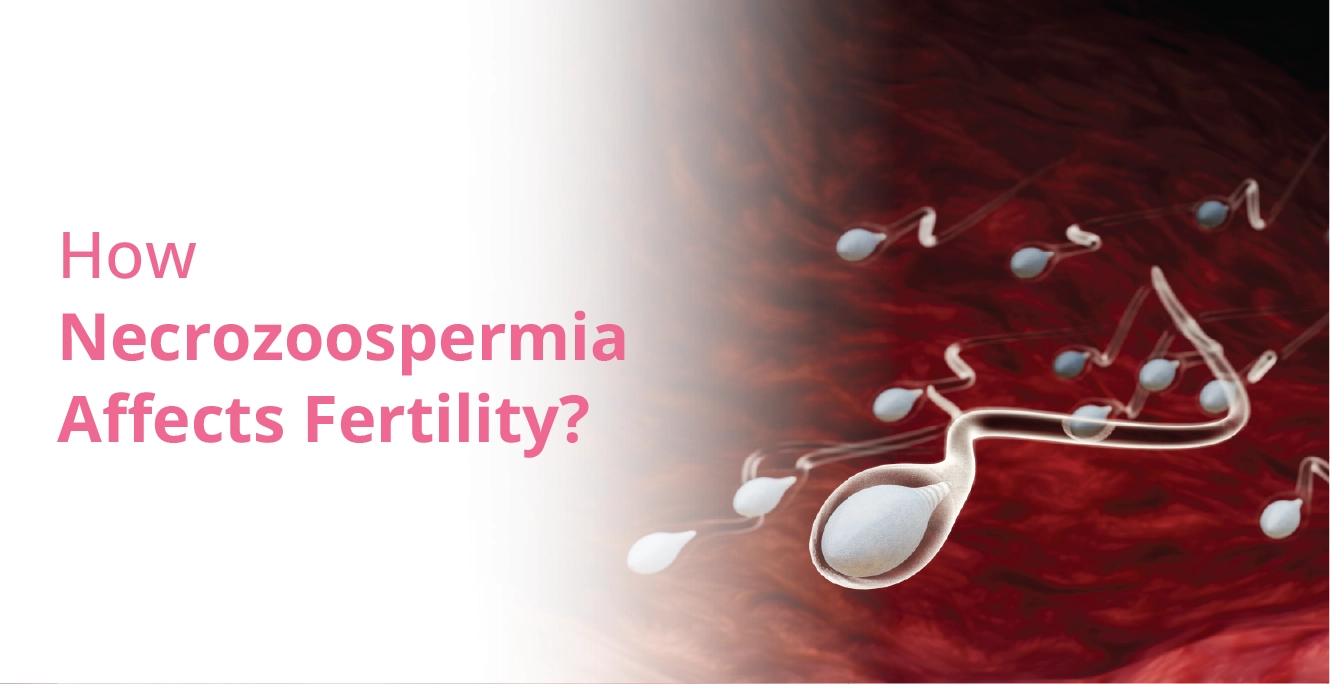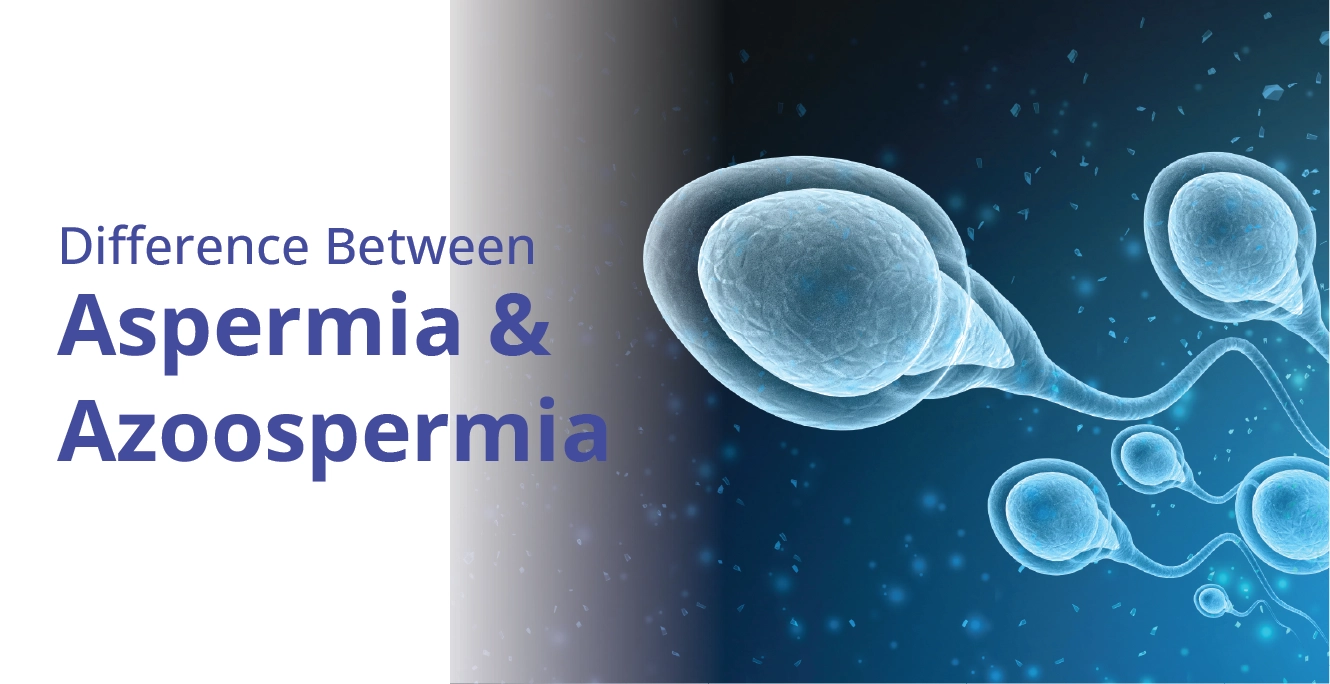
Male Infertility: Causes, Symptoms, Diagnosis, Tests & Treatment

Table of Contents
Quick Highlights
- Male infertility refers to a man’s inability to contribute to pregnancy due to low sperm count, poor motility, or structural issues.
- The causes of male infertility include hormonal imbalance, varicocele, infections or some lifestyle issues including smoking, stress etc.
- Symptoms of male infertility may not always be visible but can include difficulty in conceiving after a year of trying.
- The diagnosis of male infertility involves tests like semen analysis, hormonal analysis and imaging.
- Male fertility treatments include the use of medicines, hormone therapy, surgery and assisted reproductive procedures.
Male infertility is characterised as the inability to impregnate while having regular, unprotected sexual contact with a fertile female partner for more than 12 months. It can be concerning for couples who want to start a family but are facing issues with male fertility. To effectively treat male infertility, it is essential to comprehend its causes, symptoms, available treatments, and possibilities of recovery. An overview of male infertility and its factors is provided in the below article, along with details on its causes, signs, treatments, and prognosis.
Causes of Male Infertility:
Numerous physiological, genetic, environmental and lifestyle variables can contribute to male infertility. Effective diagnosis and treatment of fertility disorders depend on an understanding of the underlying root causes. Typically, male infertility can be a result of one of the following causes:
- Sperm-related disorders: Male infertility is significantly impacted by various disorders associated with sperm, such as low sperm count (oligospermia), poor sperm motility (asthenospermia), and aberrant sperm morphology (teratospermia).
- Hormonal Imbalances: It can be one of the significant causes of male infertility. Hormonal conditions like hypogonadism can have an impact on sperm count and general overall fertility health in males.
- Varicocele: This condition is generally normal in males during their reproductive years. During this disorder, the varicose scrotal vein gets enlarged in size, raising the temperature of the testicles, and also putting pressure on the sperm tube, affecting normal sperm production.
- Genetic Disabilities: Some genetic abnormalities in males, like Klinefelter syndrome and Y chromosomal microdeletions, can cause infertility.
- Infections: Infections like STIs such as chlamydia, gonorrhoea, or prostatitis can impact the normal function of healthy sperm production.
- Testicular Factors: There is a direct correlation between testicular abnormalities and fertility. Testicular cancer, testicular damage, or undescended testicles (cryptorchidism) are a few factors that can result in fertility disorders.
- Erectile dysfunction: Males having trouble getting or maintaining an erection may face issues having a successful sexual encounter in order to impregnate their female partner.
- Underlying Chronic Medical Issues: Male infertility can result from a variety of medical conditions. Sexually transmitted infections (STIs) and other chronic disorders like diabetes can have a detrimental effect on reproductive health. Fertility may also be impacted by illnesses like cystic fibrosis, which can cause the vas deferens (the tubes that deliver sperm) to be nonexistent or clogged.
- Lifestyle Factors: Male infertility can be impacted by smoking, binge drinking of alcohol, consumption of junk food, usage of drugs, obesity or irregular body weight, exposure to toxins in the environment, and high levels of stress.
Symptoms of Infertility in Male
Recognising the signs of male infertility is essential for tackling this issue because men’s reproductive health is necessary for successful conception. However, it is hard to see or notice any symptoms of infertility, there are a few signs that can indicate infertility in men. A few of them are:
Reduced Sexual Desire
Changes in sexual function are one of the main signs of male infertility. A persistent failure to obtain or maintain an erection, or erectile dysfunction (ED), may point to underlying fertility issues. Reduced libido or decreased sexual desire may also indicate hormonal abnormalities that impact sperm production.
Having Problems with Ejaculation
Ejaculatory issues may potentially be an indication of infertility. Retrograde ejaculation, which occurs when semen leaves the penis and exits through the bladder or premature ejaculation may be a sign of a problem with the reproductive system.
Lump, Pain, or Swelling
Another symptom to be looked for in men with infertility is physical discomfort. Infections, varicoceles (enlarged testicular veins) or other underlying problems that affect fertility can cause pain or swelling in the testicular region. Testicular cancer may be present if there are lumps or abnormalities and therapy may have an impact on fertility.
Diagnosis of Male Infertility
A thorough evaluation is necessary to determine the underlying causes of male infertility before beginning any treatment. Some diagnostic techniques include:
- Semen Analysis: A sample of semen is examined to determine the quantity, morphology, and motility of the sperm.
- Hormone Testing: Blood tests can measure hormone levels, including those of testosterone and follicle-stimulating hormone (FSH), which are essential for the creation of sperm.
- Scrotal Ultrasound: An ultrasound of the scrotum can identify blockages or anatomical irregularities in the reproductive canal.
- Genetic Testing: Through genetic testing, inherited diseases that impair fertility can be found.
- Testicular Biopsy: A biopsy of the testicles may be done in azoospermia instances to look for probable problems with sperm production.
Male Fertility Test
Your fertility testing is dependent on the cause and symptoms of infertility. Usually, male infertility tests are ordered when a person presents with the above-given symptoms or with an inability to help his partner conceive.
Your fertility doctor will begin by analysing your overall health and have a detailed discussion about your personal medical history.
He/she will first examine your health by doing a general physical exam. You will be tested for diabetes, high blood pressure, the physical state of your reproductive organs (testicles and penis) and a general checkup about your psychological health.
Your fertility specialist will ask you a range of questions to understand your fertility potential and health. You can expect to be asked questions about your personal health, family history of chronic illnesses and sexual activity.
Post this, your fertility doctor may order the following fertility test for men:
- Semen analysis – You will be asked to submit a semen sample through masturbation. The semen sample is washed and concentrated in a laboratory. The concentrated sample is then analysed under a microscope to visualise the number, shape and appearance of the sperm cells.
- Scrotal ultrasound – Your doctor may perform an ultrasound test to visualise any deformities in the scrotum area. A scrotal ultrasound makes use of high-frequency waves to produce images of the scrotum to identify problems like varicocele, problems in the testicles and their supporting structures.
- Transrectal ultrasound – Your fertility specialist may also perform the screening of your prostate through a transrectal ultrasound to identify the possibility of any blockages or prostate enlargement.
- Hormonal testing – Hormonal imbalance or abnormalities can contribute to poor development of your sexual organs as well as impact their functioning. Hormonal issues can cause infertility by hindering sperm production. Hormonal tests are done by drawing a blood sample to measure the levels of testosterone and other hormones.
- Post-ejaculation urinalysis – If you are suffering from a condition called retrograde ejaculation (a condition in which sperm cells travel backward in the bladder instead of coming out of the tip of the penis. Post-ejacultion urinalysis helps in examining the sperm in urine.
- Genetic tests – Certain genetic conditions can be congenital or acquired and impact your chances of conception. Your fertility specialist may also order genetic tests including preimplantation genetic testing to identify genetic or chromosomal abnormalities.
- Testicular biopsy – Testicular biopsy is a test in which a small tissue sample from the testicles is extracted and examined under a microscope.
- Anti-sperm antibodies test – Antisperm antibodies test is a test that examines the semen sample for special proteins (antibodies) that fight against sperm in blood, vaginal fluids, or semen.
Treatments for Male Infertility
Depending on the precise cause, treatment for male infertility may involve:
| Treatment Option | How Does it Help? |
| Changes in Lifestyle |
|
| Medication |
|
| Surgery |
|
| Assisted Reproductive Techniques (ART) |
|
| Sperm Retrieval |
|
| Support and counselling |
|
Common Risk Factors for Male Infertility
There are many potential risk factors and underlying causes for male infertility. Knowing these risk factors is essential for spotting possible problems and getting the right medical care when it’s required.
- Age: As people get older, their sperm quality and quantity may decrease. Men can have children later in life, but as they age, their fertility may decline.
- Smoking: Studies have shown that smoking reduces sperm quality, motility and quantity. It may also make sperm more likely to have genetic flaws.
- Alcohol & Drug Consumption: Drinking too much alcohol might affect the quantity and quality of sperm. Also,the use of some recreational drugs like cocaine or anabolic steroids can badly affect sperm motility and production.
- Obesity: Obesity can lead to a disruption of normal hormonal levels such as an increase in oestrogen. This can interfere with sperm quality and impact fertility.
- Sexually Transmitted Infections (STIs): Failure to seek treatment for some STIs such as Chlamydia, or Gonorrhoea can lead to blockages or scarring in the reproductive organs. This can lead to infertility.
- Varicocele: A varicocele is an enlargement of the veins in the scrotum. It may increase the temperature within the scrotal sac and harm the quality of sperm.
- Medical Conditions: Conditions like diabetes, hypertension and thyroid issues, can influence fertility by altering hormone levels or resulting in erectile dysfunction.
- Stress: Long-term stress can cause hormonal abnormalities that may have an impact on sperm count and sexual performance.
- Genetic Factors: Male infertility may result from certain genetic defects. In rare circumstances, genetic testing might be advised.
- Side Effects of Prescribed Medicines: Some drugs, such as those for high blood pressure, depression, or disorders of the prostate, may prevent conception.
- Testicular Trauma: Testicular trauma can result in scarring or other damage that impairs the generation of sperm.
- Unprotected Heat Exposure: Regular or lengthy exposure to hot environments, including those found in hot tubs or saunas, might momentarily lower sperm production.
- Treatments for Cancer: Chemotherapy and radiation therapy for cancer can harm sperm production, resulting in either temporary or permanent infertility.
- Occupational Exposures: Some professions expose workers to radiation, poisons, and chemicals that might impair sperm production. Examples include being exposed to radiation, heavy metals, or pesticides.
The fact that male infertility is frequently a complicated problem and that some risk factors may overlap is significant.
Importance of Treatments for Male Infertility
Male infertility is a treatable issue, and many couples who receive the proper treatments become pregnant. However, if you believe you could be infertile, you must act quickly to seek assistance. The likelihood of having a successful pregnancy can be considerably increased by early diagnosis and adequate treatment.
Home Remedies for Improve Male Fertility
While the above given fertility treatment for men are most suitable and effective measure to treat infertility issues, there are certain measures you can take to improve your reproductive health at home, in your day-to-day life.
Common lifestyle and home remedies for treating male infertility, boosting your fertility potential and improving your chances of conception are:
- Tracking the ovulation cycle of the female partner – Having intercourse during or around the time of ovulation can help boost your chances of pregnancy. You can use an ovulation tracking app, or take note of the changes in basal body temperature and cervical mucus to be aware of ovulation.
- Living a healthy lifestyle – Leading a healthy lifestyle that includes eating a nutrient dense diet, being physically active, maintaining a healthy body weight, getting enough sleep and reducing your stress levels can help boost your fertile potential.
- Avoiding substance abuse – If you are trying for a baby, you should stay wary of tobacco and also avoid drinking alcohol as these substances harm your sperm health.
Conclusion
Male infertility is a common problem that many couples experience globally. Understanding its origins, going through diagnostic procedures, and investigating your options for treatment of male infertility will help you realise your dream of having children. Consult a fertility expert if you or your partner are experiencing fertility issues to get started on the road to a healthy pregnancy. Know that help is accessible and that you are not alone.
You can trust the fertility experts at Birla Fertility & IVF and consult them for your fertility-related concerns. Our team will provide you with the best solutions as per your condition.
FAQs
Does Smoking Affect Sperm Count?
Yes. Smoking can be a significant factor that can lead to infertility in males. It affects the DNA carried by sperm and can also affect the motility of sperm, resulting in the inability to impregnate a female partner.
What Are Common Male Sexual Disorders?
Common male sexual disorders include premature ejaculation, erectile dysfunction, and retrograde ejaculation.
Do Bodybuilding Steroids Affect Fertility in Males?
Yes. Oral steroids and injections used to build bodies can result in male fertility. Such drugs and steroids can impact the levels of hormones, causing hormonal imbalance.
How Can I Improve Sperm Quality Naturally?
The following tips can help you improve the quality of your sperm naturally. These are standard measures that may not be effective for everyone:
- Join stress management groups if you are affected by chronic stress
- Quit smoking
- Avoid consumption of alcohol
- Eat healthy and protein rich food
- Stay hydrated
- Prevent from STDs
How Can I Prevent Infertility?
Here are a few tips that can help you prevent male infertility:
- Avoid alcoholic drinks
- Refrain from smoking
- Mainatin a healthy routine
- Reduce stress as much as possible
- Eat healthy diet
- Avoid direct exposure to the sun targeting scrotal region
- Avoid frequent hot baths
- Do regular exercise
Can Varicocele Affect My Fertility?
Yes, varicocele usually affects the normal function of fertility. The enlarged vein puts pressure on other veins, restricting proper blood circulation and causing fertility issues.
Is Fertility a Genetic Problem?
Not always. There are two types of inefrtility in men: genetic and acquired. The exact cause may vary from one male to another and can only be detected after a through diagnosis.
Our Fertility Specialists
Related Blogs
To know more
Birla Fertility & IVF aims at transforming the future of fertility globally, through outstanding clinical outcomes, research, innovation and compassionate care.
Had an IVF Failure?
Talk to our fertility experts

 Our Centers
Our Centers


















